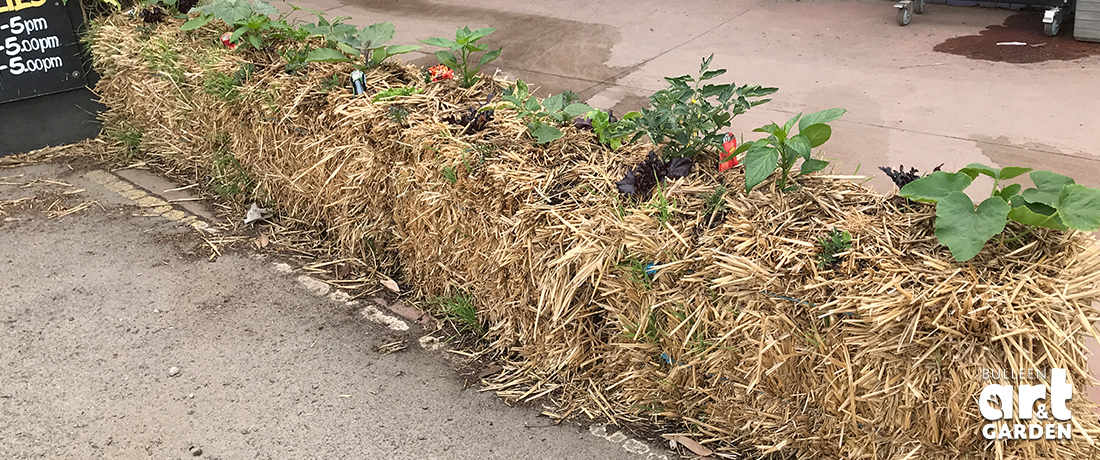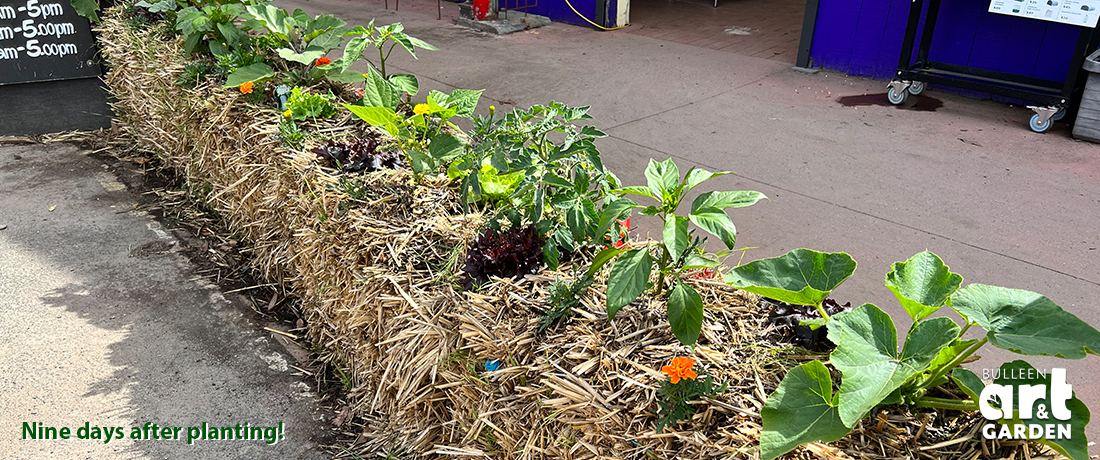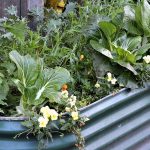

Have you ever thought about growing vegies in Straw Bales?
Benefits of bales
• Place an instant garden wherever the sun shines… even on concrete!
• A way to avoid poorly draining, hard-to-work or diseased soil.
• Less labour intensive.
• Uses LESS WATER than plants grown in soil.
You must condition your bales first before planting! (This takes 10-14 days)
The first week
• Water the bale thoroughly, until water runs out the bottom of the bale. Sprinkle the surface with a nitrogen source, applying at the recommended rate. Why so much nitrogen? It jump-starts the composting process and creates an ideal environment for plant roots.
• Every other day, add more of the nitrogen source; water thoroughly. Do it a total of three times during the first week.
• On the days you don’t apply nitrogen, just water the bales thoroughly.
The second week
• For the next three days, apply the nitrogen source daily at half the original rate. Follow up with thorough watering.
• After three days of adding nitrogen, water daily.
• At the end of the week, sprinkle each bale with 2 cups of balanced fertiliser,
Planting time.
Make a hole in your bale and add a little potting mix. Plant your seedling into the hole as deep as possible. You want to make sure the roots are as far into the centre of the bale to access moisture, as the edge will be crusty. Fill in around the roots with potting mix.
Water daily!
(1/3 of a watering can per bale is all you need. Too much water and you flush the nutrients out and your plants won’t thrive.)
(On extremely hot days, water a couple of times but still only 1/3 watering can. The aim is to keep the bale damp but not to flush the bale.)
Weekly fertilising is very important because frequent watering will lead to nutrient loss more quickly. Feed your crops once a week with a balanced water soluble plant food. ( Eg.Charlie Carp) (We also use All Purpose Plant Food from our shop, sprinkled around the plants as this will slowly feed them.)
End of Season
The bales will have broken down somewhat. Remove all the plants and for the next season try sowing your root crops. They will love it! You may find your bales have totally collapsed into a rich mound of compost. This is perfect for adding to containers, mulching your garden beds or tossing in the compost pile.




